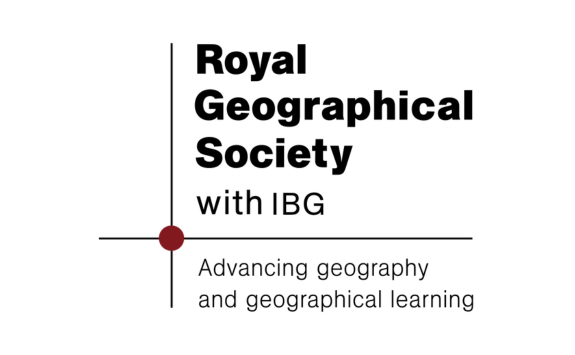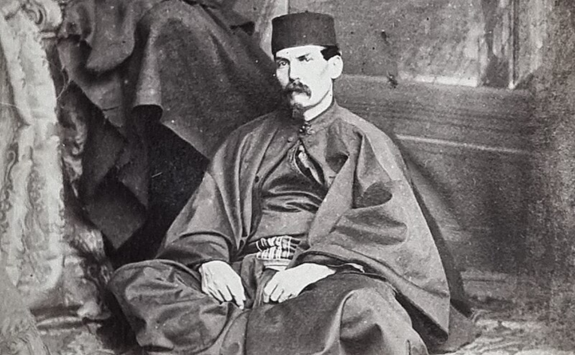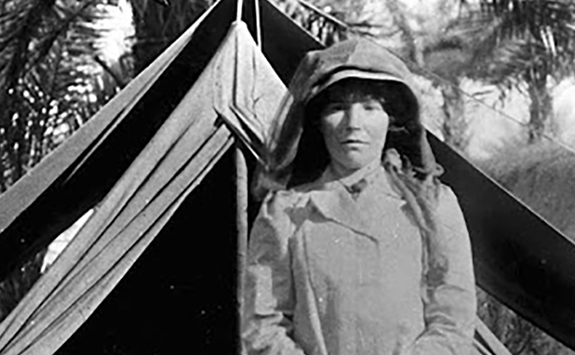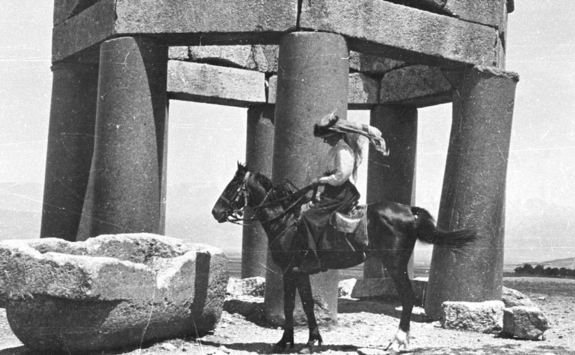Further £156k donated to enhance Newcastle University’s Gertrude Bell Archive
A generous gift from long-standing supporters, the Harry and Alice Stillman Foundation will fund an 18-month project with the Royal Geographical Society to create the most comprehensive view of the life and work of North East born explorer Gertrude Bell.
26 May 2025
We are grateful to the Harry and Alice Stillman Foundation for their ongoing support of Newcastle University’s Gertrude Bell Archive, the largest archive in our collection.
The Foundation has recently donated an additional £156,000 to the University, bringing the total they have given to the Gertrude Bell Archive to date to around £300,000.
The latest funding will enable Newcastle University to embark on an 18-month project with the Royal Geographical Society (RGS), sharing knowledge and best practice to digitise Gertrude Bell’s photographs, archaeological notebooks, maps and geographical notes in their collection to showcase in Newcastle University’s online interface.
The 500 photograph negatives included in the RGS collection preserve a precious record of sites, landscapes and communities, many of which have changed dramatically over the past century and some which no longer exist.
Digitising and curating these 14 boxes of materials in the context of Newcastle University’s existing Gertrude Bell Archive will provide a more rounded digital picture of Bell’s explorations, accessed by hundreds of thousands of people each year globally.

Another treasure held by RGS is Bell’s theodolite, a measuring instrument gifted to her by the Society in 1913 when she was awarded the Gill Memorial Prize for “her many years of exploration into the geography and archaeology of Syria, Mesopotamia and Turkey and Asia”. Bell asked for the award in the form of the theodolite and training, which she employed to record her journey to Arabia. This map is now part of the RGS collection, along with her field notebooks, original cartographical drawings and measurements.
Alongside enhancing the Gertrude Bell Archive, the latest donation from the Harry and Alice Stillman will also help the RGS digitise the archive of one of Bell’s contemporaries, Sir Richard Francis Burton, currently held at the Huntington Library in California.
Burton was a British explorer, army officer, orientalist writer and scholar. He was famed for his travels and explorations in Asia, Africa and South America, as well as his extensive knowledge of languages and cultures, speaking up to 29 different languages. His best-known achievements include undertaking the Hajj to Mecca in disguise, translating One Thousand and One Nights and publishing the Kama Sutra in English. Burton also became the first European known to have seen Lake Tanganyika in Africa, the world’s second-largest freshwater lake.
The Harry and Alice Stillman Foundation’s latest donation will also enable Newcastle University to publish a landmark book commemorating the centenary of Bell’s death in July 2026, and to curate a major exhibition at the Royal Geographical Society in London with lectures, workshops and special events.

Speaking on why he continues to support the Gertrude Bell Archive at Newcastle University, Trustee of the Harry and Alice Stillman Foundation Roger Stillman said:
"Credit for my interest in the Gertrude Bell Archive must go to Harriet Coates of the T.E. Lawrence Society who first told me about the photographs at Newcastle and their need for preservation.
My fascination with Syria began during the Arab Spring and although I had to eventually avert my eyes from that bloody conflict, all roads since then have led me back to that area."
Ian Johnson, Head of Special Collections and Archives at Newcastle University, said:
“We are immensely grateful to the Harry and Alice Stillman Foundation for their ongoing support, and are especially excited that, with their latest funding, we will be able to make the most of Newcastle University’s expertise in digital archives to bring together the Gertrude Bell archival collections here with those held at the Royal Geographical Society.
“By partnering with the RGS in this new project, will be able to offer terrific engagement and research-impact opportunities through the development of the Gertrude Bell website, and the additions of a new book and exhibition in London.”
About the existing Gertrude Bell Archive
Gertrude Bell (1868-1926) was a noted explorer, diplomat and archaeologist, who travelled and worked extensively across the world, especially in the Middle East. Following the First World War, she became a pivotal figure in the creation of the Kingdom of Iraq.
Bell’s letters, diaries and photographs were donated to Newcastle University by her family upon her death, totalling close to 10,000 items. These items provide unique, irreplaceable documentation of the people and cultural contexts of multiple ethnic and religious groups living through the transition from the Ottoman Empire before World War I until 1926.
In 2017, the archive was added to UNESCO’s International Memory of the World register – the documentary equivalent of becoming a World Heritage Site. It is one of only a handful in the UK to be included.
Within the Archive is a multitude of stories with a truly global audience. It is used as an invaluable source of reference by scholars, artists, filmmakers, family historians, curators and writers. For example, directors of Letters from Baghdad, a 2016 documentary about Bell produced and starring Tilda Swinton, researched Bell’s life extensively using Newcastle University’s archive.


In recent years, the support of the Harry and Alice Stillman Foundation has been pivotal in our research, development and dissemination of the extraordinary Gertrude Bell Archive to current and future generations.
Donations from the Foundation have facilitated the major digitisation and re-curation of the archive online, including the launch of a new geospatial interface which provides the Archive’s global audience with an immersive visual experience of the unique documentary heritage depicting Bell’s life and travels.
Their generosity has also facilitated workshops with local primary and secondary school children, and a showcase exhibition about Gertrude Bell in Newcastle and Exeter. Newcastle University has also been able to host visiting international scholarship placements from the Iraq National Library and Archive, and the British School at Rome, sharing our best practice in digitising archives with global scholars.
How donations support research
From theory to practice, our research community develops solutions to societal challenges. Solutions that control and cure disease, enrich our cultural world, protect and enhance the environment.
Creating a high-performing culture for research is about investing in the best people, the best facilities and the best projects. Donations create bold new possibilities. They inspire confidence and act as a catalyst for accelerated growth and as a magnet for additional investment.
To learn more about how to support research and innovation at Newcastle University, contact Alexa Charlton at alexa.charlton@ncl.ac.uk.
